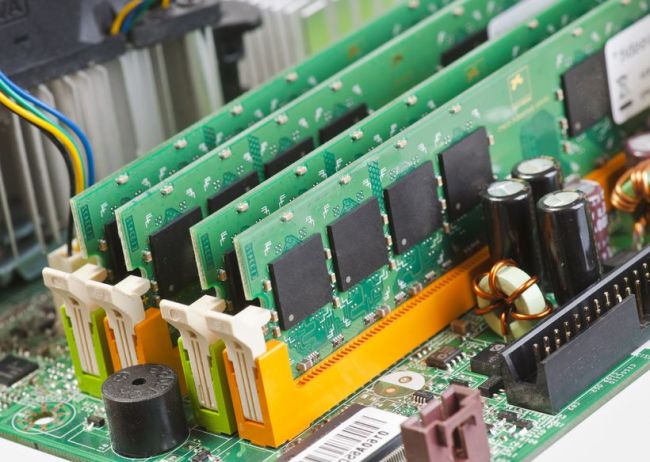[News Focus] Will China’s memory chips push threaten Samsung?
By Shin Ji-hyePublished : July 19, 2016 - 16:12
China’s latest move to contend in the memory chips segment could threaten the dominant positions of two South Korean firms in the global market --Samsung Electronics and SK Hynix -- and incur a possible technology leak through the departures of local professionals to the neighboring country, market watchers warned Tuesday.
China’s chip-maker JHICC recently broke ground for its DRAM plant with an investment of around 6 trillion won ($5.2 billion), aiming to produce 60,000 sheets of 12-inch (30-centimeter) wafers monthly by 2018. It plans to double the production capacity within five years.
China’s chip-maker JHICC recently broke ground for its DRAM plant with an investment of around 6 trillion won ($5.2 billion), aiming to produce 60,000 sheets of 12-inch (30-centimeter) wafers monthly by 2018. It plans to double the production capacity within five years.

JHICC is not the only Chinese firm making massive investment in memory chips in the neighboring country.
Tsinghua Unigroup and XMC also announced that they would be investing 13 trillion won and 27 trillion won each for technological self-sufficiency.
China, under the leadership of President Xi Jinping, aims to replace more than 50 percent of DRAM and NAND flash memory with their own products by 2025 by investing public funds worth 140 trillion won.
Market watchers said China’s push has caused a stir in the monopoly of the three firms.
The global DRAM market has been dominated by Samsung Electronics, which has an around 50 percent share, followed by SK Hynix with 30 percent and Micron Technology with 20 percent. There has been no new entrant in the market over the last three years due to high entry barriers.
“The import volume of semiconductors in China is around 272 trillion won annually. Even if only half of them becomes self-sufficient, that would strike a huge blow to Korean companies in the long term,” said Lee Seung-woo, an analyst from IBK Securities.
Samsung feels uncomfortable too.
“We are not at ease with China’s push in the memory chip market. Although there are still technology gaps between Korea and China, it appears to be inevitable to lose our market (share)-- such as chips for low-end smartphones or cars -- to the Chinese firms to some extent,” a senior source from Samsung told The Korea Herald.
Chips for cars -- autonomous and electric -- are relatively bigger than those for smartphones, which require tinier and more advanced technologies, according to industry sources.
Apart from losing the market share, China’s push to attract Korean engineers are also emerging as new challenges. They have already hired engineers from Japan, Taiwan and Silicon Valley by acquiring the firms.
“Brain drain is becoming a serious issue in the local chip industry. Chinese companies are luring Korean engineers by offering salaries nine times higher than they receive here,” said Park Jae-gun, a professor of Hanyang University’s engineering college.
By Shin Ji-hye (shinjh@heraldcorp.com)









![[Hello India] Hyundai Motor vows to boost 'clean mobility' in India](http://res.heraldm.com/phpwas/restmb_idxmake.php?idx=644&simg=/content/image/2024/04/25/20240425050672_0.jpg&u=)









